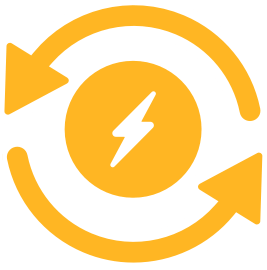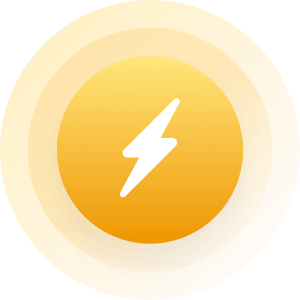| Topic: queston about shingles | |
|---|---|
|
what is the chance for someone like me
or anyone else on dialysis to get shingles i was around my caretaker ( no she doesnt live with me) on wed and i noticed this thing on her neck she said she had a small case of this yrs ago and it went away well she went to the doc today and that what she found out i had the chicken pox when i was little but i sure dont need the shingles at this point my aunt and my uncle both had it |
|
|
|
|
|
If you had chicken pocks,you can get shingles.They are not very nice.And very contagas.
She should not be woking around people untill she is healed. |
|
|
|
|
|
Anybody that has had chicken pox carries the shingles virus..You may never get them but seems more people are getting them these days. They are contagious for a time..I had them some years ago, my daughter had them when she was a toddler and my sister also had them when a toddler...The pain is very bad, a burning sensation, as is the itching, your doctor will recommend something for that. Mine only lasted for about 3-4 months but I know people that have had them for as long as a year or more. You would have a burning sensation before the breakout.. Hope that you don't get them..Ask your dr. about the shingles vaccine, not sure what the age limit is on that but you could be considered high risk because of your dialysis.
|
|
|
|
|
|
If you had chicken pocks,you can get shingles.They are not very nice.And very contagas. She should not be woking around people untill she is healed. she has to take some time off from her other job as well |
|
|
|
|
|
Edited by
Conrad_73
on
Fri 10/11/13 08:51 AM
|
|
|
Herpes zoster (or simply zoster), commonly known as shingles and also known as zona, is a viral disease characterized by a painful skin rash with blisters in a limited area on one side of the body (left or right), often in a stripe. The initial infection with varicella zoster virus (VZV) causes the acute, short-lived illness chickenpox which generally occurs in children and young adults. Once an episode of chickenpox has resolved, the virus is not eliminated from the body and can go on to cause shingles an illness with very different symptoms often many years after the initial infection. Herpes zoster is not the same disease as herpes simplex, despite the name similarity; both the varicella zoster virus and herpes simplex virus belong to the same viral subfamily Alphaherpesvirinae.
After the initial episode of chickenpox resolves, the varicella zoster virus remains latent in the nerve cell bodies and, less frequently, the non-neuronal satellite cells of the dorsal root, cranial nerve or autonomic ganglia,[1] without causing any symptoms.[2] Years or decades after the initial infection, the virus may break out of nerve cell bodies and travel down nerve axons to cause viral infection of the skin in the region of the nerve. The virus may spread from one or more ganglia along nerves of an affected segment and infect the corresponding dermatome (an area of skin supplied by one spinal nerve) causing a painful rash.[3][4] Although the rash usually heals within two to four weeks, some sufferers experience residual nerve pain for months or years, a condition called postherpetic neuralgia. Exactly how the virus remains latent in the body, and subsequently re-activates, is not understood.[1]WIKI As with chickenpox and/or other forms of herpes, direct contact with an active rash can spread VZV to a person who has no immunity to the virus. This newly infected individual may then develop chickenpox, but will not immediately develop shingles. Until the rash has developed crusts, a person is extremely contagious. A person is not infectious before blisters appear, or during postherpetic neuralgia (pain after the rash is gone).[12]WIKI http://en.wikipedia.org/wiki/Herpes_zoster (Shingles) |
|
|
|
|
|
Herpes zoster (or simply zoster), commonly known as shingles and also known as zona, is a viral disease characterized by a painful skin rash with blisters in a limited area on one side of the body (left or right), often in a stripe. The initial infection with varicella zoster virus (VZV) causes the acute, short-lived illness chickenpox which generally occurs in children and young adults. Once an episode of chickenpox has resolved, the virus is not eliminated from the body and can go on to cause shingles an illness with very different symptoms often many years after the initial infection. Herpes zoster is not the same disease as herpes simplex, despite the name similarity; both the varicella zoster virus and herpes simplex virus belong to the same viral subfamily Alphaherpesvirinae. After the initial episode of chickenpox resolves, the varicella zoster virus remains latent in the nerve cell bodies and, less frequently, the non-neuronal satellite cells of the dorsal root, cranial nerve or autonomic ganglia,[1] without causing any symptoms.[2] Years or decades after the initial infection, the virus may break out of nerve cell bodies and travel down nerve axons to cause viral infection of the skin in the region of the nerve. The virus may spread from one or more ganglia along nerves of an affected segment and infect the corresponding dermatome (an area of skin supplied by one spinal nerve) causing a painful rash.[3][4] Although the rash usually heals within two to four weeks, some sufferers experience residual nerve pain for months or years, a condition called postherpetic neuralgia. Exactly how the virus remains latent in the body, and subsequently re-activates, is not understood.[1]WIKI As with chickenpox and/or other forms of herpes, direct contact with an active rash can spread VZV to a person who has no immunity to the virus. This newly infected individual may then develop chickenpox, but will not immediately develop shingles. Until the rash has developed crusts, a person is extremely contagious. A person is not infectious before blisters appear, or during postherpetic neuralgia (pain after the rash is gone).[12]WIKI http://en.wikipedia.org/wiki/Herpes_zoster (Shingles) she said she had some pain before the white stuff pop up and she was sick a about a week before thinking it was a type of flu bug for her daughter was sick with the flu but she didnt think anything of it untill she went to the doc the next day (thursday) and thats when she found out |
|
|
|
|
|
Yeah, no, it's totally a form of herpes that is highly contagious. I'd watch it.
|
|
|
|
|
|
Yeah, no, it's totally a form of herpes that is highly contagious. I'd watch it. yes i know thank you and i did talk to the nurse in dialyis today and he said i should be ok but i can call my doc and see what he says |
|
|
|
|










